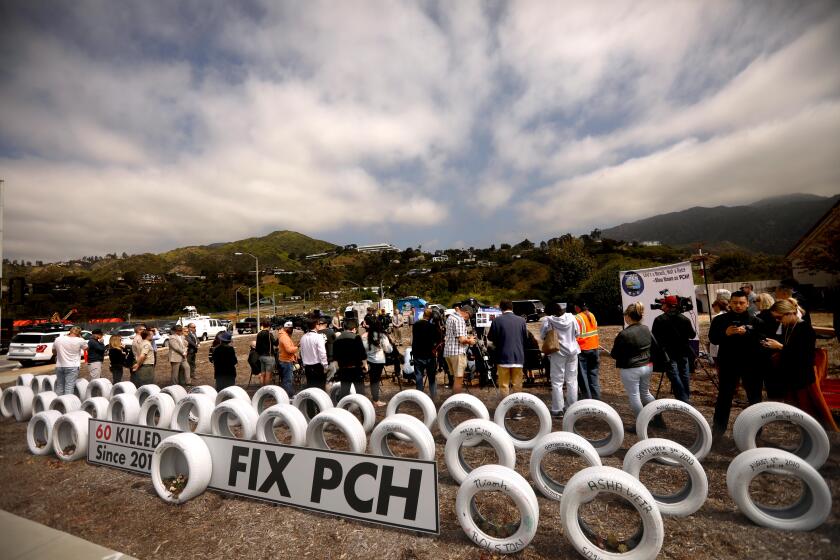Study Finds Americans Pessimistic on Status of Families : Parenthood: Time and money constraints are cited in survey. An Orange County woman says the U.S. can be a frightening place for Latino immigrants.
Most Americans are pessimistic about the state of the family in the United States and believe that today’s financial and time constraints make it much more difficult to raise children than in the past, according to a report released Thursday by the National Commission on Children.
Still, both parents and children reported that their own family life is satisfying, the report says.
Despite the mixed message, Sen. John D. (Jay) Rockefeller IV (D-W.Va.), chairman of the bipartisan commission, said the results of the report serve as a clarion call for the public and private sectors to provide relief to American families.
“America’s parents and America’s children are speaking directly to Washington through this survey,” Rockefeller said. “They are telling us that they are being tested and torn by too little time, by too little money, by too many absent parents and by their growing fears about crime.”
Rockefeller said the report, based on two national surveys, shows that most Americans believe children are worse off today than ever before in terms of supervision, discipline and in their moral and religious upbringing.
But, he said, “Despite the pressures, most families are making heroic efforts to hold themselves together. They’re swimming upstream--but they’re making it.”
In the first survey, conducted as part of the commission’s 2 1/2-year investigation into the status of American children, more than 1,400 adults were interviewed; some were parents and others were not.
The report shows that 88% of adults surveyed believe that parenting is harder today and 87% believe that all parents are hard-pressed financially. It also shows that 81% of adults believe that parents spend too little time with their children.
The second survey included telephone interviews with 1,700 parents and 900 children ages 10 to 17. In this survey about the respondents’ families, most were described as close-knit.
The survey found that 70% of families eat dinner together five or more nights a week, while 88% of parents said they believe they know all or most of the time what their children are doing when away from home.
However, more than half the parents surveyed--55%--said they are concerned that their family income is not sufficient to make ends meet. Almost 60% said they want more time to spend with their children.
One of the most troubling of the report’s findings is that parents of all income levels worry about their children’s safety and believe there is no safe place in their neighborhood for their children to gather, Rockefeller said. Minority parents expressed the greatest concern.
Black parents were 1 1/2 times more likely than white parents to worry “a lot” that their children might be shot, might use drugs or might be unable to find work after school.
Latino parents were five to 10 times as likely as white parents and twice as likely as black parents to express extreme anxiety that their children might use or sell drugs, become pregnant out of wedlock, or get AIDS. More than 60% of Latino parents said they worry “a lot” that their children might be shot.
The United States can be a frightening place for Latino immigrants, who traditionally have very close families, said Becky Esparza, chairwoman of the Orange County Human Relations Commission.
“If you’re from Mexico, say, you haven’t dealt with gang or drug problems. If your daughter went out, she was chaperoned. Here, there’s this freedom that’s unique to our culture.”
Latino children frequently stay close to the family until the teen years, and then return to the fold when they marry, she said. “Those few years are when you worry like heck.”
The report also showed that two-parent families are generally the best environment for children. Single parents worry more about financial matters and are less likely than two-parent families to consider their neighborhoods a good place to raise children. Only one-third of the children surveyed in single-parent families said they had seen their fathers in the last week and almost one in five had not seen their fathers for five years.
Rockefeller said he will introduce a package in the Senate that will include many of the proposals early next year.
More to Read
Start your day right
Sign up for Essential California for news, features and recommendations from the L.A. Times and beyond in your inbox six days a week.
You may occasionally receive promotional content from the Los Angeles Times.






